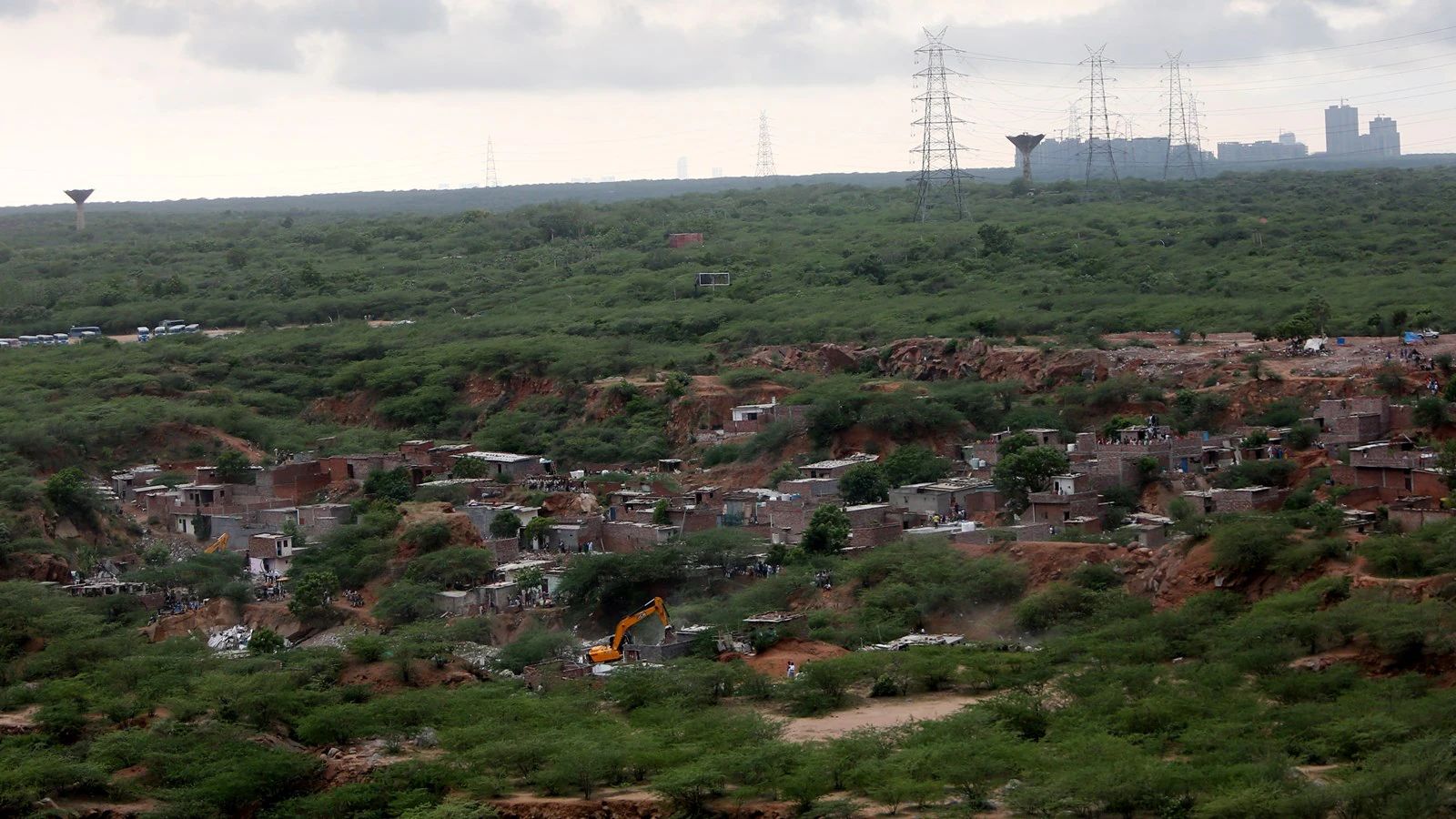Ethiopia’s New Eco-Tourism Railway Project Nears Completion, Enhancing Travel Across the Country, Get the Details Here

Published on
October 9, 2025

The Ethiopian Railways Corporation (ERC) recently reported that the first phase of construction for the country’s eco-tourism railway is almost complete. This milestone is important not only for the country’s transport sector but for the tourism sector as well. This project will transform Ethiopian travel into something more sustainable. It will connect tourists to the country’s most beautiful and historical areas while prioritizing eco-friendly transport.
This project is the first of its kind in sub-Saharan Africa. Even more impressively, Ethiopian engineers, technicians and local materials did the complete design and construction of the project. This reflects Ethiopia’s growing ability to build and manage railways. This also shows a clear commitment to sustainable railway construction and management.
A Landmark Achievement in Ethiopian Railway Development
The eco-tourism railway project is not only significant for its environmental focus but also for the technological and industrial advancements it represents. The Ethiopian Railways Corporation has successfully constructed Ethiopia’s first locally manufactured passenger train coach, an achievement that highlights the growing industrial capabilities within the country. This marks a major step forward in Ethiopia’s ambitions to become a regional leader in railway development and engineering, contributing to the country’s economic growth and self-sufficiency.
By utilizing locally available resources and expertise, the project has minimized reliance on foreign imports, reducing costs and conserving foreign currency. This approach also strengthens Ethiopia’s industrial capacity, with the initiative training young technicians in modern railway construction methods, ensuring the long-term sustainability of the sector.
Promoting Green Mobility and Sustainable Tourism
The primary objective of the eco-tourism railway is to provide a sustainable alternative to traditional transport options, supporting Ethiopia’s broader environmental goals. The project aligns with global trends toward green mobility and eco-friendly transportation systems, offering an attractive option for tourists who are increasingly conscious of their environmental impact.
This railway will connect Ethiopia’s key tourist destinations, making it easier for domestic and international visitors to access scenic locations such as the Simien Mountains, Lalibela, and the Omo Valley. These areas are renowned for their rich cultural heritage and stunning landscapes, but they have traditionally been difficult to reach due to limited transport options. By integrating these destinations into the national rail network, the eco-tourism railway will boost domestic tourism, encourage regional economic activity, and improve the overall tourism infrastructure.
In addition to increasing access to tourist sites, the project is expected to create a more comfortable, reliable, and efficient way for travelers to explore Ethiopia, making it an even more attractive destination for international tourists. The eco-tourism railway offers tourists the opportunity to experience the country’s natural beauty and cultural heritage in an environmentally conscious way, helping to position Ethiopia as a sustainable tourism leader in the region.
Local Participation and Capacity Building
A key feature of the eco-tourism railway project is its emphasis on local participation and the development of human resources. The Ethiopian Railways Corporation has involved nearby communities in the construction process, providing employment opportunities and fostering a sense of ownership and pride among locals. This approach ensures that the benefits of the project are shared with local populations, contributing to job creation and community development.
In addition, the project has prioritized the training of young Ethiopians in modern railway construction, enabling them to gain valuable skills in one of the country’s most promising industries. By nurturing local talent and promoting knowledge transfer, Ethiopia is investing in the long-term sustainability of its railway sector, while also addressing its youth unemployment challenges.
Economic Impact: Boosting Regional Development and Industrial Capacity
The eco-tourism railway is not only a boon for Ethiopia’s tourism industry but also a key driver of regional development and industrial capacity. By improving access to tourism destinations, the railway will facilitate greater movement of goods and people, stimulating economic activity in various regions. As tourists and local residents travel more easily, demand for services such as hospitality, food and beverage, and local crafts is expected to rise, providing a significant economic boost.
In parallel with the eco-tourism railway, the Ethiopian Railways Corporation is developing a 5-kilometer railway line linking the Geda Economic Zone, located between Adama and Mojo, to the Addis Ababa-Djibouti railway. This new connection is designed to support industrial transport, facilitating the movement of goods and strengthening Ethiopia’s logistics and export capacity. The Geda Economic Zone, which is being developed as a major industrial hub, will benefit from enhanced connectivity to the broader East African rail network, helping to position Ethiopia as a critical player in the regional economy.
Supporting Sustainable Development Goals (SDGs)
Ethiopia’s eco-tourism railway project aligns closely with the United Nations’ Sustainable Development Goals (SDGs), particularly those focused on sustainable cities and communities (Goal 11), responsible consumption and production (Goal 12), and decent work and economic growth (Goal 8). By integrating sustainable practices into the transportation sector, the railway supports Ethiopia’s commitment to green growth and inclusive development.
The project also contributes to climate action (Goal 13) by reducing the country’s carbon footprint. By offering a cleaner alternative to road transport, the railway will decrease emissions associated with travel to popular tourist destinations, supporting Ethiopia’s national environmental targets.
Looking Ahead: Future Opportunities for Ethiopia’s Tourism and Railway Sectors
Once completed, the eco-tourism railway will not only enhance tourism in Ethiopia but also set the stage for future developments in the country’s railway sector. As the government continues to prioritize sustainable transport and tourism initiatives, the project will likely serve as a model for other countries in the region looking to integrate sustainability into their tourism and transport infrastructures.
In the coming years, Ethiopia’s growing railway network could further boost regional integration, international trade, and tourism, positioning the country as a major hub for both business and leisure travel in East Africa. The success of this eco-tourism railway project demonstrates Ethiopia’s potential as an emerging player in the global tourism and transport industries, and it offers valuable lessons on sustainable development and local capacity building.
A Game-Changer for Ethiopia’s Tourism and Transport Sectors
Ethiopian Railways Corporation Eco-Tourism Railways initiative is an innovative Ethiopia Railways Transport and Tourism advancement. Building accessible and Eco-friendly transportation options will open and enhance sustainable tourism to Ethiopia’s cultural and natural gems. Ethiopia illustrates local and sustainable tourism economic opportunities through local community engagement and economic activity focus. With rapid progress on this transport advancement project, Ethiopia is preparing to offer to travelers an economic contribution to Ethiopia’s future.
link






